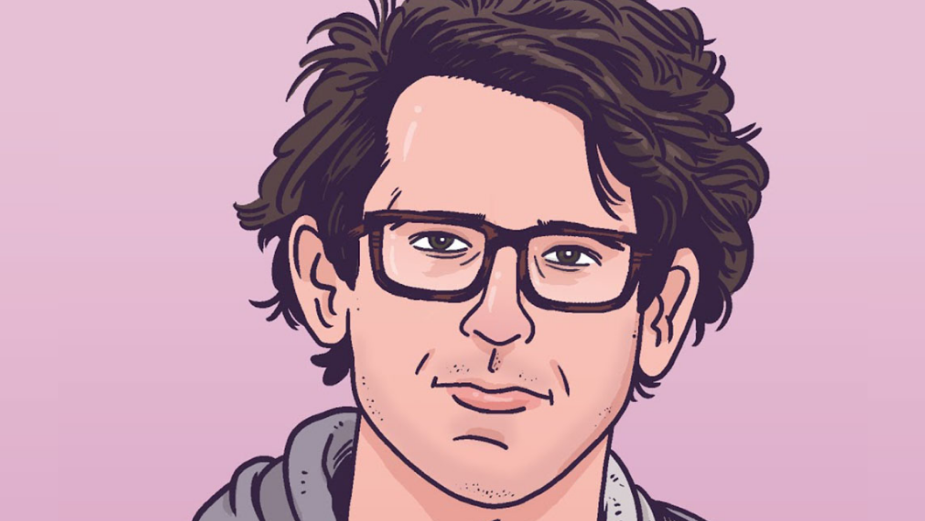
Meet Your Makers: Michael Gross on What It Means to Be a Good Producer

Oscillating between producer and music supervisor roles, Michael Gross cut his teeth in his native Los Angeles as agency music supervisor for TBWA\Chiat\Day and Omelet, before moving to the UK to pursue fashion and music editorial pursuits as head of music for AllSaints, developing their brand music strategy, talent partnerships, retail audio playlisting, whitelabel music video platform, creative direction and more. After three years abroad, he returned stateside, where has continued to grow his experience across the agency and brand sides of the industry.
He held freelance posts as music creative director of Twitter, and music director for Droga5’s D5X Festival. As a music supervisor, brand consultant and producer he has collaborated with brands such as Audi, Energizer, Google, the NFL, Nissan and Samsung, among others. He then filled the role of senior creative producer at Google, overseeing the launch of cloud-gaming platform Stadia before joining Squeak E. Clean Studios as Executive Creative Producer in 2021.
LBB> What first attracted you to production - and has it been an industry you’ve always worked on or did you come to it from another area?
Michael> Originally, I wanted to be creative-side. I was putting together a portfolio as a copywriter while working a day job in event production at the time. I met an agency producer through an aspiring art director colleague at The Bookshop School and she in turn introduced me to the head of production at TBWA\Chiat\Day, Richard O’Neill, a true legend in advertising. He produced the iconic Apple ‘1984’ spot and essentially revolutionized broadcast commercial production. Like any career start, you have to get your foot in the door and then proceed from there. My plan was always to switch over to the creative department, but as I started out, I found that I really liked production-side. I was extremely fortunate to learn from world-class producer talent at Chiat. I also loved how social and fun producing was (and still is) and absorbed as much as I could about the craft of filmmaking; it’s fascinating and there is always more to learn. There is nothing like being on set for a production and traveling the world, but there was also a major learning curve with what happened off the set. While putting together bids may not be as fun as being on production, it’s one of the most useful skills that you bring to any production role.
LBB> What was your first role in the production world and how did this experience influence how you think about production and how you grew your career? How did you learn to be a producer?
Michael> My first job out of school was event production for music events like the Super Bowl halftime show, NBA All-Star Game and large-scale corporate events. It was fast-paced, challenging grueling work; I was always lugging things around, moving heavy equipment from point A to B. Attention to detail is paramount. I learned about that the hard way early on. You also learn (hopefully) very early on to be kind and treat your crew with respect. Things can go south really quick, otherwise.
It took me a good beat to arrive at the central theme of what it means to be a (good) producer though: and that is, your job is to elevate the creative through execution. You’re tasked with bringing the thing to life, and you need to draw upon a variety of skills and a network of talent in order to get it done, and done well. Within that, you can let your personality shine. Each producer is different and can flex different strengths and skills, but always with a baseline in organisation, diligence, attention to detail and lastly, punctuality.
LBB> Looking back to the beginning of your career, can you tell us about a production you were involved in where you really had to dig deep and that really helped you to grow as a producer?
Michael> Working the 2007 Super Bowl halftime show in Miami, featuring Prince, was absolute insanity. I didn’t sleep for days and every aspect of it really pushed my limits early on. In those kinds of productions, you are challenged on all levels: your patience, character, demeanour, and stamina.
LBB> A good producer should be able to produce for any medium, from film to events to digital experience. Do you agree or disagree with this statement? Why/why not?
Michael> I completely agree. Memo to human resource departments and recruiting agencies out there: It’s a misstep to overlook candidates because the medium may be different to what’s on their reel or CV. The skills to shepherd something from concept stage through to final delivery is what producers are taught and what to evaluate them on. The medium itself, or final asset format is absolutely secondary in that process.
LBB> What’s your favourite thing about production and why?
Michael> The responsibility that comes with the job title. We’re the ones who get it done. I love that. Putting something on your shoulders and being asked to deliver on behalf of an entire team is a challenging and rewarding duty. Producers are the unsung badasses on the job; I’ll always evangelize for what we do.
LBB> How has production changed since you started your career? And what has stayed the same?
Michael> What’s different today is what your deliverables list looks like. It used to be 1 x core asset and perhaps a cutdown deliverable. Now, with shifting and emerging media plans/platforms, formats for different screens, etc etc, your deliverables list is much longer. What hasn’t changed are the time-tested and resilient tools in your producer toolbelt that will get you to the finish line. You’re still a problem solver.
LBB> What do you think is the key to being an effective producer - and is it something that’s innate or something that can be learned?
Michael> There are many ways to be an effective producer. There are producers who are effective because they give information directly and bluntly and many people appreciate that. Other producers are effective by adding a creative point of view. Some producers are effective by delivering on time and on budget no matter what. Other producers are effective because they are calm and unbothered by all the craziness surround a project, thereby making everyone else on the working team also calm. Others are all of the above! Being a good listener is paramount. Portraying confidence and calmness puts your peers at ease. You’re the one who needs to be a rock through it all, no matter the hurdle.
LBB> Which production project from across your career are you most proud of and why?
Michael> While I was in-house at Google, the Google Stadia launch campaign that I spearheaded was a herculean task. It was not only the launch of a new product, but it was in a fairly new area for the brand. We were dealing with a disruptive new product in a medium that was not my main area of expertise: video games. Learning the language of video games and marketing while leading an astoundingly large team that is all looking to you to drive the project forward with all their own agendas was a delicate balance that I took seriously. That was probably my best work.
LBB> Producers always have the best stories. What’s the hairiest / most insane situation you’ve found yourself in and how did you work your way out of it?
Michael> Years back, I worked on a “viral” video campaign for VISA and the NFL. This was when brands were looking to do stunts to get attention and when metrics were something like “one million views on youtube” (HA). For this particular project, the agency kept the client in the dark on the specifics to avoid spooking them out. The stunts the creatives wanted to do were very edgy and potentially with legal ramifications if not executed according to plan. Long story short, this left me panicking in a hotel room one night in Boston thinking I would be arrested. The next day were were going to have a bunch of butt-naked Buffalo Bills fans streak through Boston Commons and disrupt a New England Patriots film shoot. Hardly anyone knew this was about to happen. I thought that I, along with all these guys who we’d cast, were going to get arrested on the spot, the larger Visa/NFL production was going to be shut down and the stunt would be on the news and I’d lose my job. Thankfully, it went to plan and turned out hilariously…
LBB> What are your personal ambitions or aspirations as a producer?
Michael> Anybody who has ambition knows that whatever level you reach is not enough. You keep pushing yourself and there is always something else that you want to do. My list of what I look for is pretty simple these days. Am I trusted and empowered to do my best work? Having that assurance is far more important to me than salary or title.
LBB> As a producer your brain must have a never ending to-do list. How do you switch off? What do you do to relax?
Michael> Exercise and family. I try to put my phone down too. No emails after 8pm. Setting boundaries is one of the most important things you can do. You have to set clear boundaries and make sure people understand and respect them. Everyone has a plan B. If you can communicate clearly your avails to your colleagues they should be able to find a work-around just fine.
LBB> Producers are problem solvers. What personally fuels your curiosity and drive?
Michael> With music, it is something that you can never master. It is an ocean of knowledge, complexity, personality, mystery and people. To have the hubris to think you can master all that is insane. When I encounter people who are better at it than me and know more, it’s really humbling. It’s like losing in chess or something. You are humbled to your core and also in awe. It is depressing and also exhilarating.
LBB> What advice would you give to people who are interested in becoming a producer?
Michael> Be accountable. Grow your network. Your Rolodex is your essential currency. Attention to detail and clear communication is paramount. Be kind.
LBB> From your experience what are the ingredients for a successful production?
Michael> Simple, did you make the work better? On schedule and on budget isn’t as important as making it great.
LBB> What’s the key to a successful production-client relationship?
Michael> I’ve learned that from working across agency, freelance and client sides of the industry, that the foundation of a successful production-client relationship remains the same from all points of view. The key is building mutual respect, clear lines of communication, and consistency with process.
LBB> One specifically for EPs: Producers are naturally hands on - they have to be. How do you balance that in the more managerial role of an EP?
Michael> You’re the 'leader', in a sense, so you need to build trust with your colleagues. That comes with exhibiting hard work, passion and commitment to them and the project. Treating the team with respect and decency is absolutely a mandate. Honesty is a bit of a lost art too. Hold yourself accountable and ask the same of your team. Be decent, constructive with criticism, respectful, and lead by example. Also have fun. Know your team’s personalities, embrace their strengths, and help them to improve their skills.













